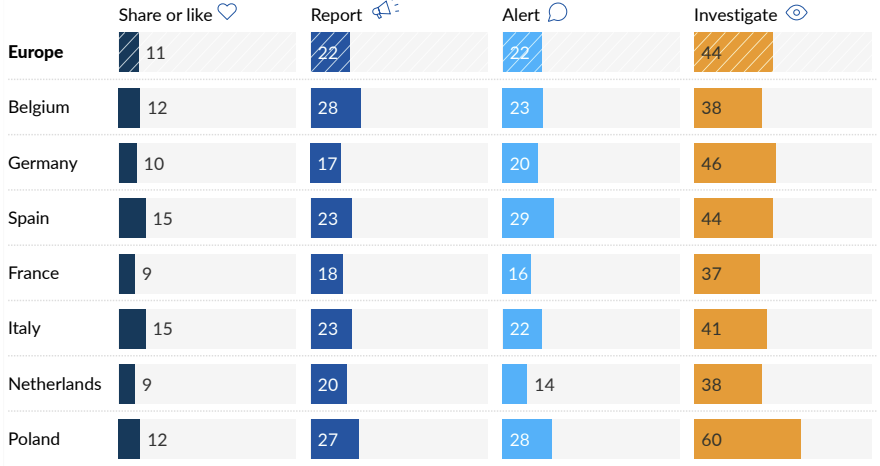85% of EU citizens support increased political action against disinformation.
85% of EU citizens support increased political action against disinformation.
The Fight Against Fake News: EU Citizens Call for Action

The fight against fake news has gained overwhelming support in the European Union (EU), as a new study reveals that 85% of EU citizens want policymakers to take more action against disinformation. Additionally, 89% of respondents believe that platform operators should intensify their efforts in combating fake news. These findings, stemming from surveys conducted by Bertelsmann Stiftung, a pro-business German think tank with close ties to the EU, highlight the increasing concern with the spread of disinformation.
In today’s digital age, where information spreads exponentially, 54% of respondents across the EU admitted to often being unsure about the accuracy of the information they encounter online. Surprisingly, only 44% of those individuals had recently fact-checked the content. However, the study also suggests that younger and more educated people are more likely to actively combat false information. Furthermore, those in favor of combating disinformation tend to lean towards the political left, emphasizing the role of political ideology in shaping public opinion on this issue.
Bertelsmann Stiftung has responded to these findings by making several recommendations. Firstly, they advocate for the establishment of an effective system for monitoring disinformation, both in Germany and across Europe. Secondly, raising public awareness about the prevalence and impact of disinformation is crucial. Additionally, promoting media literacy among individuals of all age groups can help equip them with the necessary skills to discern fact from fiction. Lastly, ensuring consistent and transparent content creation on digital platforms is essential for rebuilding trust.
However, interventions to combat fake news have proven to be divisive. Politicians around the world have been accused of exploiting concerns about disinformation to suppress dissent and control narratives. In the UK, campaigners uncovered instances where government anti-fake news units surveilled citizens, public figures, and media outlets for merely criticizing state policies. Furthermore, they facilitated censorship of legal content on social media platforms, sparking concerns about freedom of speech and expression.
Critics of the EU’s approach also raise alarms about tech firms being tasked with determining the veracity of information, effectively acting as arbiters of truth. They fear that this might lead to unjustified state censorship. Nevertheless, the researchers at Bertelsmann Stiftung argue that increased intervention is necessary.
“People in Europe are very uncertain about which digital content they can trust and which has been intentionally manipulated,” highlights Kai Unzicker, the study author, emphasizing the need for collective action. Leaving individuals to deal with disinformation on their own would undermine efforts to protect and strengthen democracy.
In addition to addressing the issue of disinformation, stronger responses to fake news could also foster the growth of anti-disinformation startups. While the United States currently dominates this emerging sector, Ukraine is emerging as a hub for anti-disinformation technology. Ukrainian technologists are using their experience in combating Russian propaganda to develop innovative solutions and create new business opportunities.
As the fight against fake news continues, it is evident that citizens are demanding more action from policymakers and tech companies. However, it is crucial to strike a balance between preserving freedom of speech and ensuring the veracity of information. The journey towards an informed and trustworthy digital landscape requires a collective effort from all stakeholders involved.
